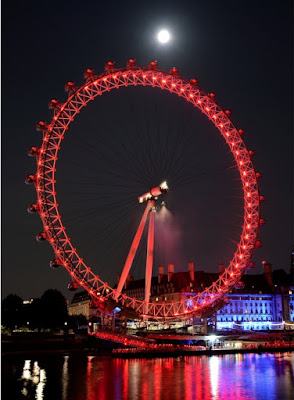Fashion lovers rejoice, Diet Coke can officially announce it is partnering with the highly anticipated ‘Absolutely Fabulous: The Movie’ from Fox Searchlight Pictures, which releases in cinemas nationwide on 1 July.
To celebrate, the iconic soft drinks brand has unveiled limited-edition Diet Coke Absolutely Fabulous themed packs. And they’re just as fab as you imagined, sweetie darling.
Fabulous taste, darling!
Inspired by the glitz and glamour of the much-loved British comedy, a striking image of Jennifer Saunders and Joanna Lumley back in action as the stylish duo, Edina Monsoon and Patsy Stone, decorates the limited-edition pack designs.
Cool, refreshing and Absolutely Fabulous, limited-edition Diet Coke Absolutely Fabulous packs are available across the full Diet Coke range nationwide from mid-June, while stocks last. An Absolutely Fabulous limited-edition 250ml Alu bottle will also be available from Liberty London and Boots stores nationwide to mark the launch of the film.
The partnership will be supported by in-store point of sale, an outdoor advertising campaign, PR, radio and digital.
Jennifer Saunders said: "Just like 'Absolutely Fabulous The Movie', Diet Coke oozes glitz and glamour so I'm really excited about the partnership and can't wait to enjoy a 'Diet Coke break' with the limited-edition product!”
Bobby Brittain, Marketing Director, Coca-Cola Great Britain said, “As one of this summer's most anticipated films, Absolutely Fabulous: The Movie is the ultimate partnership for Diet Coke. Many of our Diet Coke drinkers grew up watching the iconic British comedy on television so we feel very excited about the collaboration and look forward to celebrating the film with our Diet Coke Absolutely Fabulous themed packs. The two brands’ target demographics mirror each other perfectly, making the pair an ideal double act."
Absolutely Fabulous: The Movie will be released in cinemas nationwide on 1 July.
For more information, visit facebook.com/DietCoke or follow @DietCokeGB.
-Ends-
For further information or imagery, please email dietcoke@lexisagency.com
About Coca-Cola Great Britain
Coca-Cola Great Britain is responsible for marketing 18 brands and over 82 products to consumers across Great Britain. Led by Coca-Cola, one of the world's most valuable and recognisable brands, our company portfolio includes Fanta, Sprite, Dr Pepper, Oasis, glaceau vitaminwater, glaceau smartwater, Schweppes, 5 Alive, Lilt, Kia Ora and Powerade. For more information about Coca‑Cola in Great Britain, please visit our website at www.coca-cola.co.uk.
About Diet Coke
Diet Coke is the world’s #1 diet soft drink
It has a global value of over $11 billion
It is sold in 167 markets
A total of 2.7 billion people in Europe have consumed Diet Coke since its launch in 1983
Over 7 billion people have enjoyed 336 billion litres of Diet Coke globally over the past three decades
© 2016 The Coca-Cola Company. All rights reserved. DIET COKE is a registered trademark of The Coca-Cola Company.
About Fox Searchlight Pictures
Fox Searchlight Pictures is a specialty film company that both finances and acquires motion pictures. It has its own marketing and distribution operations, and its films are distributed internationally by Twentieth Century Fox. Fox Searchlight Pictures is a unit of 21st Century Fox.
About Absolutely Fabulous: The Movie
Appropriate for their big screen debut, Edina Monsoon and Patsy Stone are still oozing glitz and glamour, living the high life they are accustomed to; shopping, drinking and clubbing their way around London’s trendiest hotspots. Blamed for a major incident at an uber fashionable launch party, Eddy and Patsy become entangled in a media storm and are relentlessly pursued by the paparazzi. Fleeing penniless to the glamorous playground of the super-rich, the French Riviera, they hatch a plan to make their escape permanent and live the high life forevermore! RELEASE DATE UK cinemas - 1st July 2016.
Facebook: https://www.facebook.com/AbsolutelyFabulousTheMovie/
Twitter: https://twitter.com/abfabmovie
Instagram: https://www.instagram.com/abfabmovie/
Absolutely Fabulous is a trademark of the BBC/Saunders & French Productions Ltd
© 2016 Twentieth Century Fox Film Corporation. All rights reserved.
Supporting photo caption
Fabulous taste, darling! To celebrate the nationwide cinema release of Absolutely Fabulous: The Movie on 1 July, refreshingly fabulous limited-edition Diet Coke ‘Absolutely Fabulous’ packs are available across the full Diet Coke range. In stores nationwide from mid-June, while stocks last.




















































